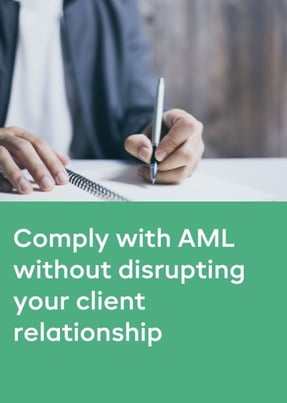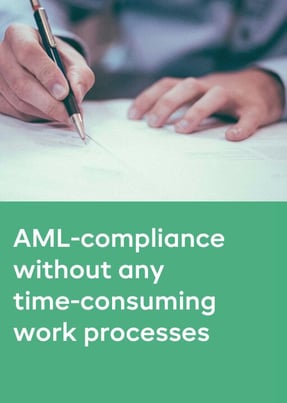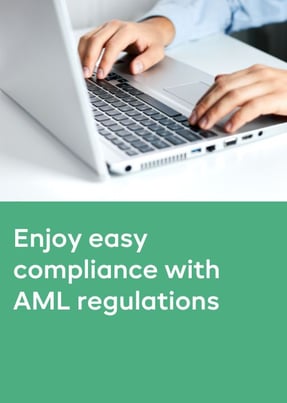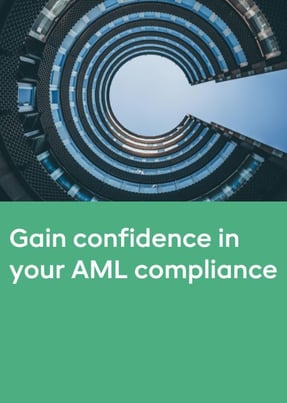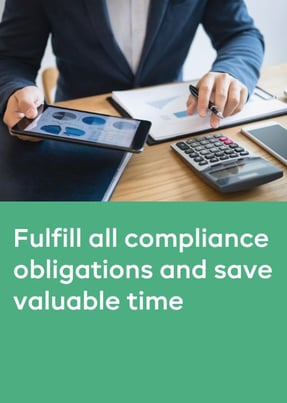Greenberg Traurig explains: Gaining control over AML compliance with RegLab

Summary
A conversation with Else Luppes (Compliance Specialist) and Hans Urlus (Shareholder and lawyer) of Greenberg Traurig, LLP.
Greenberg Traurig, LLP (hereinafter “GT”) is an internationally operating law firm with 40 firms worldwide and claims to be the most entrepreneurial law firm in the Netherlands. This entrepreneurial spirit is also evident in the firm’s approach to the Dutch Anti-Money Laundering Act (AML). The Amsterdam firm not only sets the firm's policy but also writes it. We sat down for a conversation with Else Luppes (Compliance Specialist) and Hans Urlus (Shareholder and lawyer) of GT. Education and awareness regarding the AML appear to be essential.
GT employs over a hundred professionals in the Netherlands, including more than fifty-five lawyers, tax advisors, and (candidate) notaries. The other firms are located worldwide, primarily in the US but also in South America, Asia, and (the rest of) Europe. At GT, not only lawyers but also notaries and tax advisors must comply with complex laws and regulations. Add international compliance guidelines to this, and you have a remarkable issue. How does GT handle this?
Turning necessity into virtue
Hans: ‘In the AML onboarding process, we also need to consider US regulations. The procedure surrounding AML (Anti-Money Laundering) legislation is central to our firm. From the American model, we are accustomed to working with various compliance procedures and policy rules. A well-thought-out office policy, education, facilitating tools, and a specialised department ensure that it remains manageable and workable. We turn necessity into virtue.’
GT has developed an up-to-date AML policy. The firm is also working with The Netherlands Bar (NOvA) to create a best practice model. According to Hans, law firms find it difficult to make a risk assessment and question what appropriate measures should be taken during the onboarding of a client, as there are hardly any standards set for this. ‘It is important for firms to have the intake process in order and always be able to provide a motivated risk analysis. But what exactly are the criteria for this? We want to collaborate with NOvA to formulate these standards for the legal profession as quickly as possible.’
‘The question: “Show us why your firm's partner was able to take on this matter” will really be asked more frequently to law firms in the future.’
Asking questions
Else: ‘We want to share our international knowledge in this area. It is important that the legal profession takes the AML seriously. That's why there is good contact with the AML knowledge centre of the NOvA, located at The Netherlands Bar firm in The Hague. The professionals at GT are used to the numerous checks per matter due to the American legal requirements. It is in the firm’s DNA to not just rely on our gut feelings and trust when onboarding a new client. This is further reinforced by the similar oversight of notaries and tax advisors. Checks and monitoring are (even) stricter and more intense. Not only can we learn from this, but the entire legal profession can as well.’
Law firms have not yet been under much pressure. Still, the two specialists agree that the question: “Show us why your firm's partner was able to take on this matter” will be asked more frequently in the future.
RegLab helps raise awareness
Hans: ‘Don’t underestimate the importance of human awareness. Policies and tools are indispensable, but it is the lawyer who must make the decision based on the possible risks of a transaction or case. That's why education and awareness are high on our agenda. With internal training, at least every six months, we give concrete form to the open standard: AML. Software helps create this awareness. It makes people conscious of the AML process and the AML check.
RegLab's software helps create awareness. It makes people conscious of the AML process and the AML check.
Management information
In the Netherlands, GT uses RegLab to further automate the AML procedure. The tool developed by RegLab is not only used for client onboarding but also as a management tool. For client research, the firm uses a combination of the RegLab tool and an intake form that has been in use for years. RegLab gives the firm insight into the number of cases accepted with a certain risk profile within a specific period, the number of matters rejected, and so on.
Moreover, the firm can quickly gain an overview of matters for the regulator. Hans: ‘A good AML policy provides clear explanations of what you have investigated. This also saves time in preparing an audit and prevents reputational damage in the case of a sanction. That is why we should also be able to enter our manual AML matters into RegLab.’
Automated and secured
RegLab makes it easier for clients to submit the required documentation without the need for back-and-forth emails. Else shares that clients respond very positively to this. 'At least 70% of our clients reply within two days to the link we send them. It is mainly clients with a complex structure who need a bit more time. What I hear internally as feedback on automating client research? The fact that part of the process is outsourced externally makes it more comfortable for employees. If a client complains about all the steps in the AML check, we can refer to the software used and the existing legislation,’ Else laughs.
Specialised team
Hans and Else mention the creation of the ‘central client intake’ department as a reason why the AML is embraced positively internally at GT. In this department, all internal and external questions related to AML, General Data Protection Regulation (GDPR), and compliance are handled. Hans: ‘There was a strong need for a central point of contact that offers professional support. This department is our success factor. A golden tip for other firms. It can be a department, but also an employee who is trained as an AML specialist.’
Else: ‘Streamlining a process is one thing, but this department adds knowledge and experience. The experienced employees facilitate lawyers, tax advisors, and (candidate) notaries in making well-informed decisions during a risk analysis.’ Else concludes: ‘By using professional tools like RegLab, in combination with the expertise of the central client intake, everyone at GT can make a serious legal decision. What’s left? A motivated risk analysis. In the end, everyone benefits from that.’
